Classic constructions in Brooklyn
1) Brooklyn Public Library
Considered one of America’s greatest art deco buildings, even though ground broke for the original Brooklyn library in 1912, it didn’t open to the public until 1941, owing to the Great Depression following World War I. The library’s design evokes an open book, with its spine on Grand Army Plaza and two wings opening like pages onto Eastern Parkway and Flatbush Avenue. The seemingly sky-high wooden front doors are adorned with fifteen gilt figures from American literature, framed by columns with gold-leaf etchings. They depict the evolution of art and science through the age, a majestic paean to literature and education.
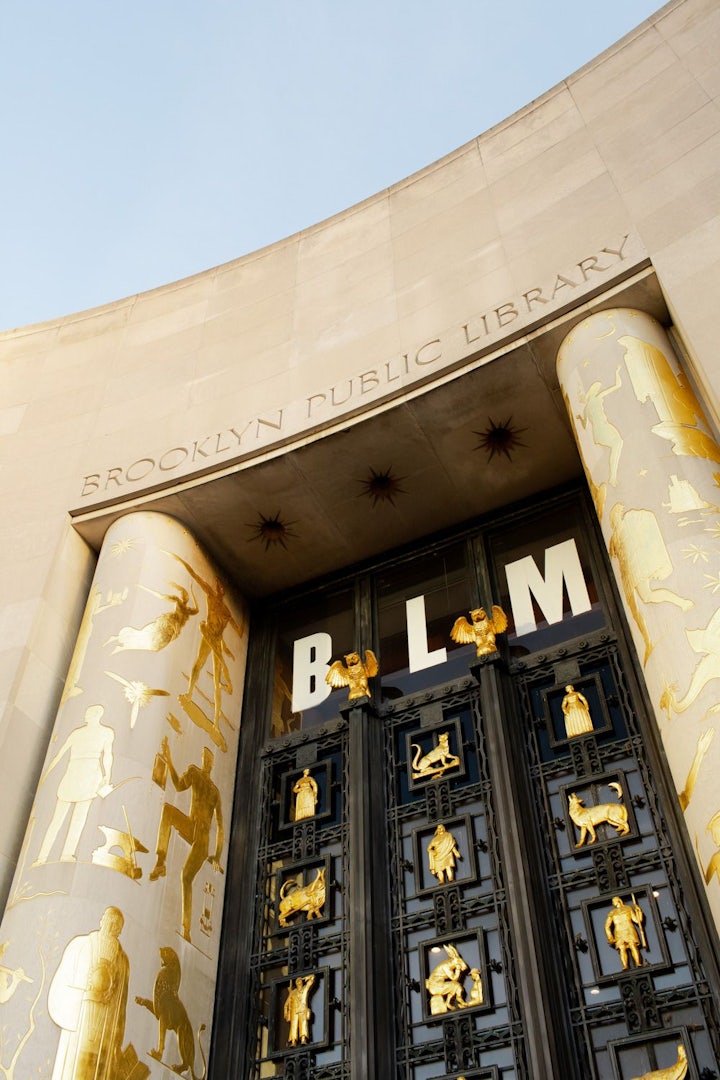
Gabriel Flores
2) Litchfield Villa
This 19th-century mansion, a hidden gem in Prospect Park, was once an elegant family home. It was designed long before the park was created by one of New York’s architectural greats, the Gothic Revivalist Alexander Jackson Davis, and commissioned by Edwin C. and Grace Litchfield. The land and house were taken against the family’s wishes in 1868 for the creation of Prospect Park. The Litchfield family were given permission to stay on as tenants and, according to park records, paid 2500 dollar per year in rent in 1883. The building now houses the administrative offices for the Prospect Park Alliance.
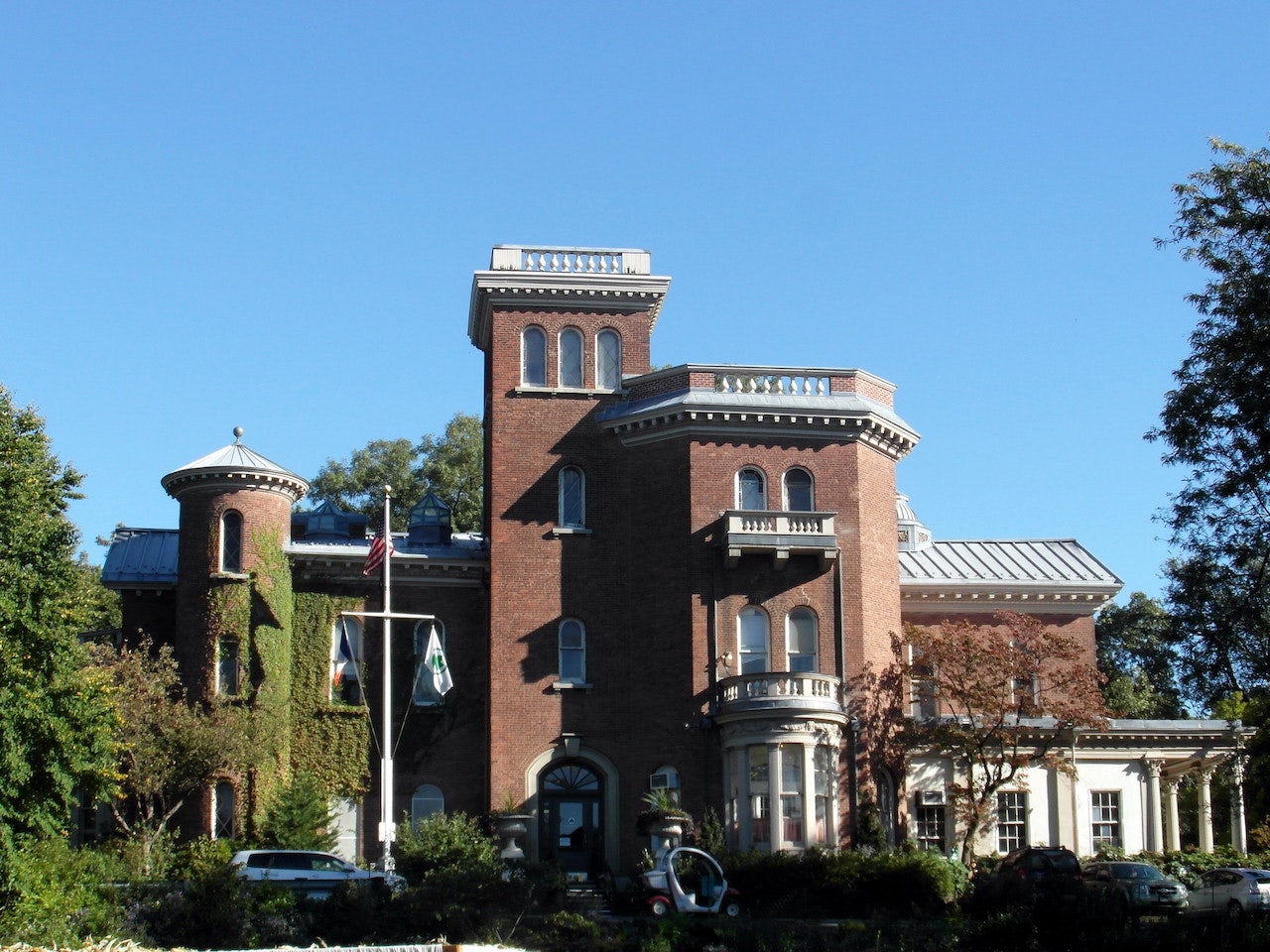
Reading Tom
More hidden secrets of Brooklyn?
Discover Brooklyn in the footsteps of a local and discover places most tourists won’t go in this uniquely curated neighborhood guide of Brooklyn. Available in our webshop now.
3) Parachute Jump
The Coney Island Parachute Jump – also called Brooklyn’s Eiffel Tower – was originally built for the 1939 New York World’s Fair in Queens, and was moved to Steeplechase Park in Coney Island in 1941. The 76-meter-tall steel framed structure was an amusement ride where riders were strapped into a two-person seat, lifted to the top, and dropped. The parachute and shock absorbers at the bottom would slow their descent. The Parachute Jump ride ceased to operate in 1964 when the Steeplechase park closed permanently. It has since remained a permanent landmark on the Coney Island skyline.
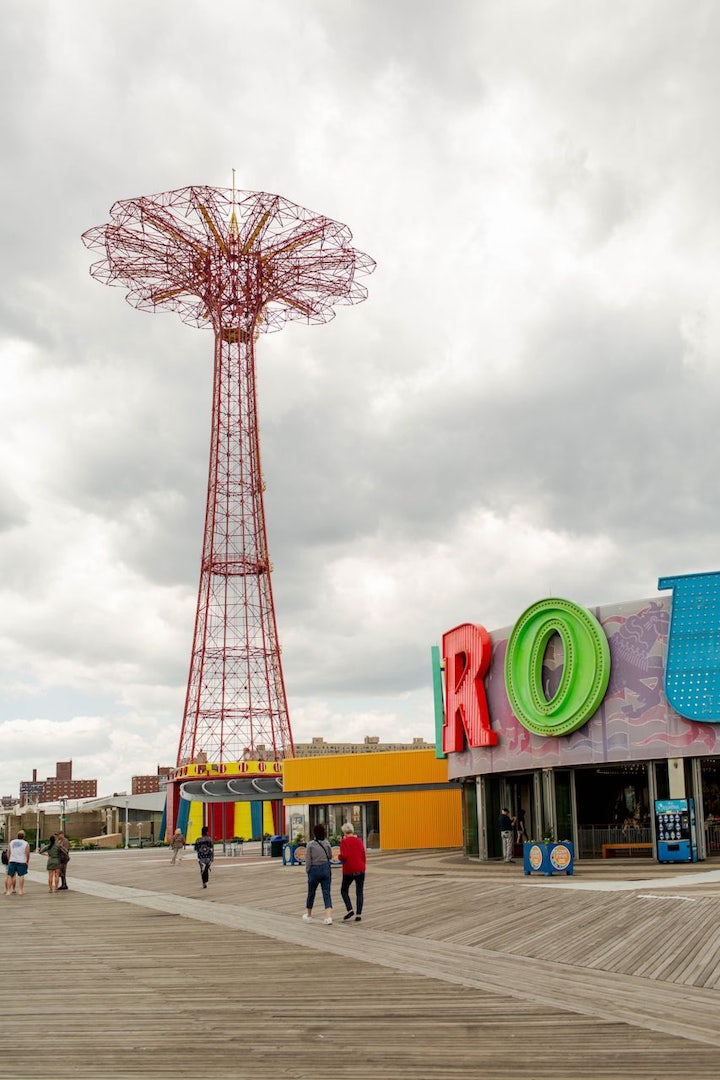
Gabriel Flores
4) The Prison Ship Martyrs' Monument
This 45-meter-tall monument to the Prison Ship Martyrs of the American Revolution, by Stanford White, consists of a 30-meter-wide granite staircase and a central Doric column. It honors the more than 11.500 men and women who died as captives of war during America’s fight for independence. They were jailed on 16 British prison ships moored along Brooklyn’s shores in Wallabout Bay – now Brooklyn Navy Yard – and died in horrendous conditions. Their bodies were tossed overboard or hastily buried along the shore. Ultimately, the remains of the prisoners were moved to Fort Greene Park in 1873 and in 1908, President-elect William Howard Taft attended the monument’s dedication.
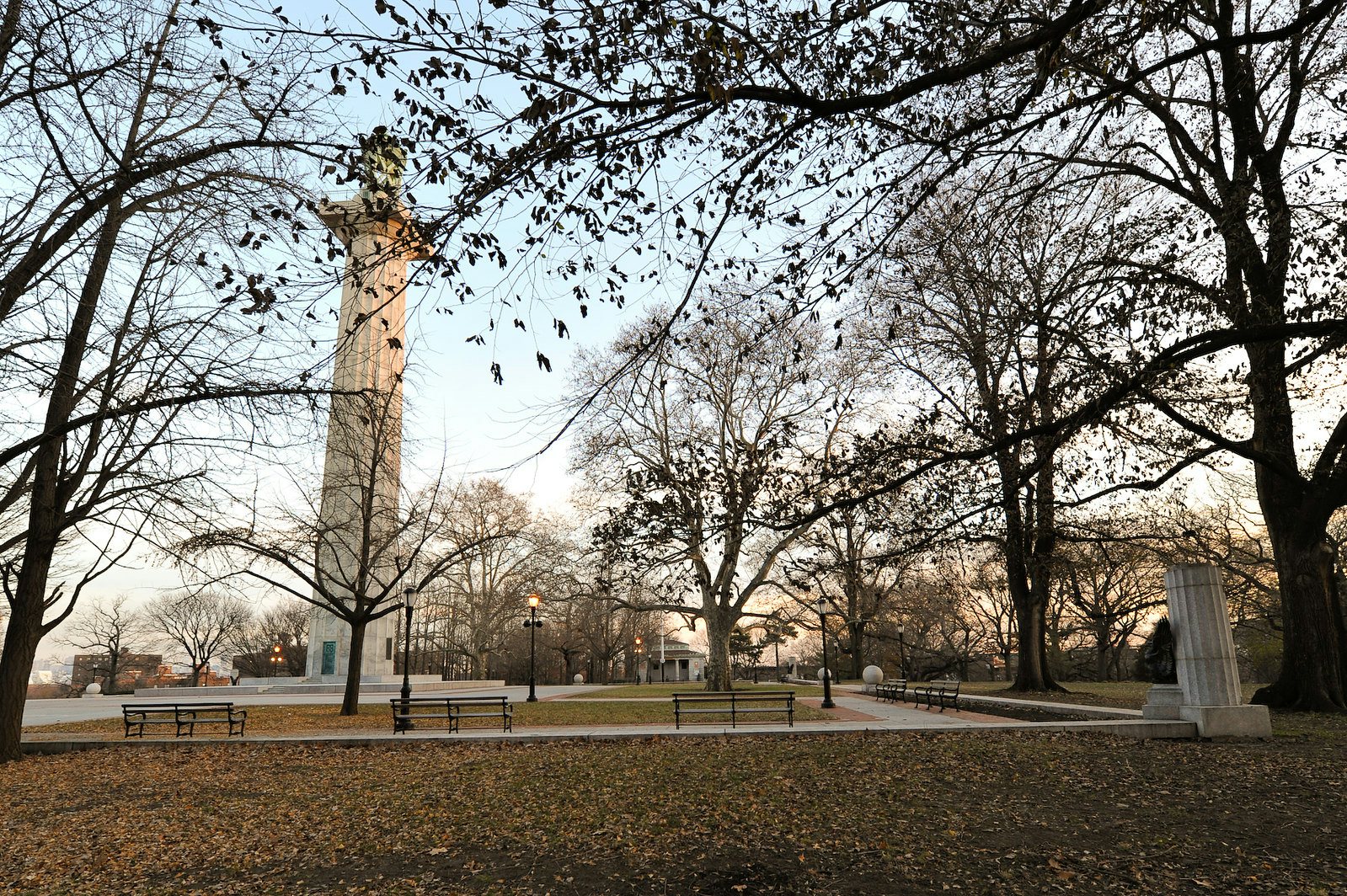
Jazz Guy
5) The Boathouse
The Beaux Arts landmark with its graceful arches and Guastavino ceiling tiles was built in 1905 and overlooks the scenic Lullwater in Prospect Park. During the 20th century the Boathouse was used for a number of purposes but was not maintained. By 1964, after years of deterioration, the building was almost demolished, but a group of Brooklyn preservationists, including Brooklyn poet Marianne Moore, managed to save it (just 48 hours before it was scheduled to be torn down!). The renovated Boathouse now houses the Audubon Center and is one of Prospect Park’s most popular buildings.
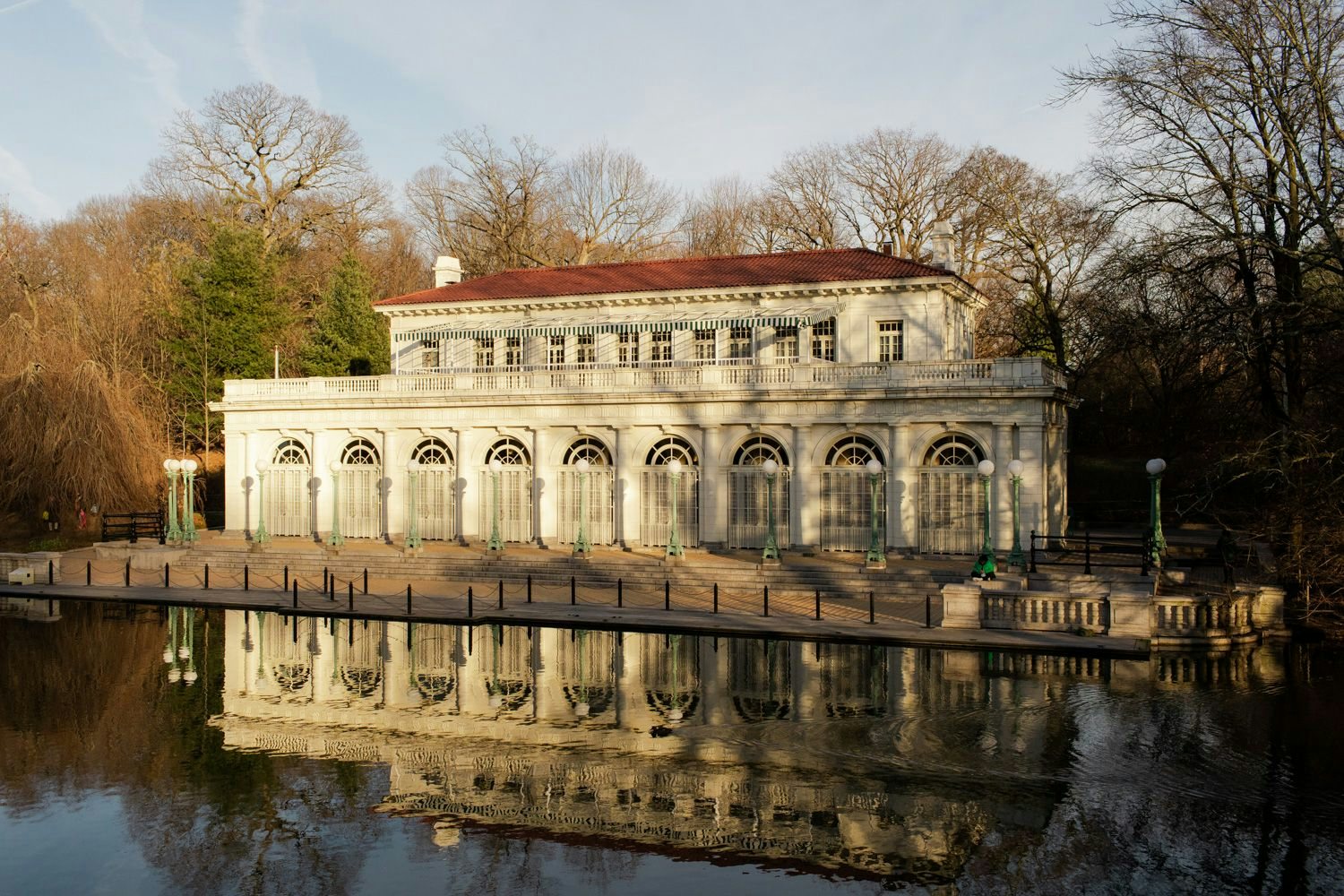
Gabriel Flores
More hidden secrets of Brooklyn?
Discover Brooklyn in the footsteps of a local and discover places most tourists won’t go in this uniquely curated neighborhood guide of Brooklyn. Available in our webshop now.
Join the community
Sign up for free to gain unlimited access to the website. Plus, you'll receive a 10% discount in our online bookshop.
Already a member? Log in. |
New here? Sign up. |